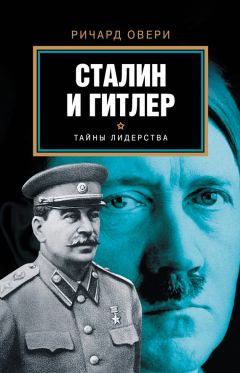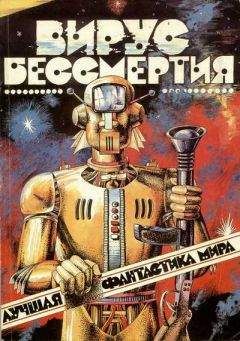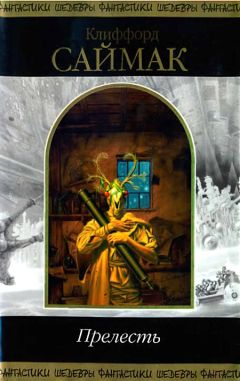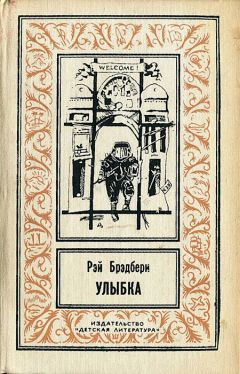141. Buckley, Women and Ideology, pp. 128–9; Fitzpatrick, Everyday Stalinism, p. 152.
142. Geiger, Family in Soviet Russia, p. 194.
143. Buckley, Women and Ideology, pp. 129–31; Fitzpatrick, Everyday Stalinism, p. 155; Geiger, Family in Soviet Russia, pp.
193–5; S. G. Solomon ‘The demographic argument in Soviet debates over the legalization of abortion in the 1920s’, Cahiers du monde russe, 33 (1992), pp. 60–65.
144. Halfi n, ‘Rape of the Intelligentsia’, p. 104; McClelland, ‘Utopianism versus Revolutionary Heroism’, p. 405.
145. R. A. Bauer The New Man in Soviet Psychology (Cambridge, Mass., 1952), pp. 124, 132, 143–50.
146. Stalin, Problems of Leninism, pp. 522–33.
147. L. Siegelbaum Stakhanovism and the Politics of Productivity in the USSR, 1935–1941 (Cambridge, 1988), pp. 68–71.
148. Siegelbaum, Stakhanovism, p. 73.
149. V. Bonnell The Iconography of the Worker in Soviet Political Art’, in L. Siegelbaum and R. Suny (eds) Making Workers Soviet: Power Class and Identity (Ithaca, NY, 1994), pp. 361–2; Fitzpatrick, Everyday Stalinism, pp. 73–5; K. Clark ‘Utopian Anthropology as a Context for Stalinist Literature’, in R. Tucker (ed.) Stalinism Essays in Historical Interpretation (New York, 1977), pp. 185–6.
150. Clark, ‘Utopian Anthropology’, pp. 183–4; Fitzpatrick, Everyday Stalinism, p.77; Bonnell, ‘Iconography of the Worker’, pp. 367–9.
151. Buckley, Women and Ideology, pp. 108–9, 112; Geiger, Family in Soviet Russia, p. 187.
152. Buckley, Women and Ideology, pp. 118–19; Siegelbaum, Stakhanovism, pp. 190–91.
153. Geiger, Family in Soviet Russia, p. 177.
154. Buckley, Women and Ideology, p. 117.
155. J. E. Bowlt and M. Drutt (eds) Amazons of the Avant-Garde (London, 1999), pp. 54–5; Bonnell, ‘Iconography of the Worker’, pp. 369, 71.
156. K. Theweleit Male Fantasies. Male bodies: psychoanalysing the white terror (Oxford, 1989), p. 163; B. Taylor and W. van der Will (eds) The Nazifi cation of Art: Art, Design, Music, Architecture and Film in the Third Reich (Winchester, 1990),
p. 63. See too J. A. Mangan ‘Icon of Monumental Brutality: Art and the Aryan Man’, in Mangan, Shaping the Superman, pp. 139–49.
157. Fitzpatrick, Everyday Stalinism, p. 46.
158. Blomquist, ‘Utopian Elements’, p. 300; Rouvidois, ‘Utopia and Totalitarianism’, p. 322.
159. Stalin, Problems of Leninism, p. 531.
160. Rouvidois, ‘Utopia and Totalitarianism’ p. 324.
161. Fitzpatrick, Everyday Stalinism, p. 68.
162. Allan, Comrades and Citizens, pp. 208–9.
163. See R. Gellately Backing Hitler: Consent and Coercion in Nazi Germany (Oxford, 2001) and C. Koonz The Nazi Conscience (Cambridge, Mass., 2003), which both explore different ways in which ordinary Germans came to accept and justify the dictatorship.
164. Rouvidois, ‘Utopia and Totalitarianism’, p. 330.
165. E. Kamenka ‘Soviet Philosophy’, in A. Smirenko (ed.) Social Thought in the Soviet Union (Chicago, 1969), pp. 89–90;
K. Bayertz ‘From Utopia to Science? The Development of Socialist Theory between Utopia and Science’, Sociology of the Sciences Yearbook: Vol VIII (Dordrecht, 1984), pp. 93–110. See too L. R. Graham Science, Philosophy and Human Behaviour in the Soviet Union (New York, 1987), esp. Chs. v – vii.
166. The complex relationship between modern science and the regime is explored in Szöllösi-Janze, Science in the Third Reich; see too M. Renneberg and M. Walker (eds) Science, TechnologyandNationalSocialism (Cambridge, 1994).
167. J. W. Baird To Die for Germany: Heroes in the Nazi Pantheon (Bloomington, Ind., 1990).
168. Bauer, New Man, pp. 144–5; on abortion see Geiger, Family in Soviet Russia, p. 195.
1. G. C. Guins Soviet Law and Soviet Society (The Hague, 1954), p. 29.
2. A. Koenen Der Fall Carl Schmitt; sein Aufstieg zum ‘Kronjuristen des Dritten Retches’ (Darmstadt, 1995), p. 612.
3. J. Stalin Problems of Leninism (Moscow, 1947), pp. 569–78, ‘Dialectical and Historical Materialism’, September 1938; see too E. Kamenka ‘Soviet Philosophy 1917–1967’, in A. Smirenko (ed.) Social Thought in the Soviet Union (Chicago, 1969), p. 53. Primers on dialectical materialism were issued in printruns of 250,000 to 500,000.
4. N. Harding Leninism (London, 1996), p. 226.
5. R. T. de George Patterns of Soviet Thought (New York, 1966), pp. 171–2.
6. G. Wetter Dialectical Materialism: A Historical and Systematic Survey of Philosophy in the Soviet Union (New York, 1958), pp. 219–20.
7. A. Hitler Mein Kampf, ed. D. C. Watt (London, 1968), p. 258; W. Maser (ed.) Hitler’s Letters and Notes (New York, 1977), p. 280; D. Gasman The Scientifi c Origins of National Socialism (London, 1971), pp. 47–9.
8. Hitler, Mein Kampf, p. 260; Maser, Hitler’s Letters and Notes, p. 280.
9. E. Jäckel Hitler’s World View: a Blueprint for Power (Middleton, Conn., 1981), p. 94.
10. A. Hitler The Secret Book, ed. T. Taylor (New York, 1961), p. 6; see too E. Fraenkel The Dual State. A Contribution to the Theory of Dictatorship (New York, 1941), pp. 108–9, citing Hans Gerber’s view that National Socialist political thought was ‘existential and biological, its data being the primal unique life process’.
11. Hitler, Mein Kampf, pp. 268–9.
12. Stalin, Problems of Leninism, p. 578; Hitler, Mein Kampf, p. 262.
13. P. van Paassen Visions Rise and Change (New York, 1955), pp. 100–106.
14. J. Bergman The Image of Jesus in the Russian Revolutionary Movement. The Case of Russian Marxism’, International Review of Social History, 25 (1990), p. 226.
15. P. J. Duncan Russian Messianism: Third Rome, Revolution, Communism and After (London, 2000), pp. 51–2; D. G. Rowley Millenarian Bolshevism, 1900–1920 (New York, 1987), pp. 355–72; W. B. Hubbard ‘Godless Communists’: Atheism and Society in Soviet Russia 1917–1932 (Dekalb, Ill., 2000), pp. 30–35.
16. V. Lenin Collected Works (45 vols., Moscow, 1963), vol. xxxv, p. 121, letter to Maxim Gorky, 13 or 14 November 1913, pp. 127–8, letter to Maxim Gorky, November 1913. See too D. V. Pospielovsky A History of Marxist-Leninist Atheism and Soviet Anti-Religious Policies: Vol I: A History of Soviet Atheism in Theory and Practice (London, 1987), pp. 1–17.
17. Hubbard, ‘Godless Communists’, p. 47.
18. M. A. Meersoix The Political Philosophy of the Russian Orthodox Episcopate in the Soviet Period’, in G. Hosking (ed.) Church, Nation and State in Russia and Ukraine (London, 1991), p. 217.
19. van Paassen, Visions Rise and Change, p. 63; E. Trubetskoy ‘The Bolshevist Utopia and the Religious Movement in Russia’, in M. Bohachevsky-Chomiak and B. G. Rosenthal (eds) A Revolution of the Spirit: Crisis of Values in Russia 1890–1918 (Newtonville, Mass., 1982.), pp. 331–2, 336–8.
20. M. Bourdeaux Opium of the People: the Christian Religion in the USSR (London, 1965), p. 51; Hubbard, ‘Godless Communists’, pp. 58–9; J. S. Curtiss The Russian Church and the Soviet State (Gloucester, Mass., 1965), pp. 200–203; A. J. Klinghoffer Red Apocalypse: the Religious Evolution of Soviet Communism (Lanham, Md, 1996), pp. 113–14.
21. Pospielovsky, Marxist-Leninist Atheism: I, pp. 30–34.
22. Hubbard, ‘Godless Communists’, pp. 62–3; D. Peris Storming the Heavens: the Soviet League of the Militant Godless (Ithaca, NY, 1998), pp. 48–9.
23. D. V. Pospielovsky A History of Marxist-Leninist Atheism and Anti-Religious Policies, Vol II: Soviet Anti-Religious Campaigns and Persecutions (London, 1988), p. 19; C. de Grunwald God and the Soviets (London, 1961), pp. 46–7, 79.
24. de Grunwald, God and the Soviets, pp. 73–9; F. Corley (ed.) Religion in the Soviet Union (New York, 1996), p. 119, instructions from Roslavl District Committee to Party offi cials and the League of the Militant Godless, 15 April 1937.
25. Bergman, The Image of Jesus’, pp. 240–42.
26. Pospielovsky, Marxist-Leninist Atheism: II, pp. 48–9.
27. M. Spinka The Church in Soviet Russia (Oxford, 1956), p. 38.
28. Bourdeaux, Opium of the People, p. 54; G. L. Freeze ‘Counter-reformation in Russian Orthodoxy: Popular Response to Religious Innovation, 1922–1925’, Slavic Review, 54 (1995), pp. 305–39.
29. Spinka, Church in Soviet Russia, pp. 62–6; Bourdeaux, Opium of the People, p. 54.
30. Pospielovsky, Marxist-Leninist Atheism: I, p. 51.
31. Pospielovsky, Marxist-Leninist Atheism: II, p. 34.
32. W. H. Chamberlin Soviet Russia: a Living Record and a History (Boston, 1938), p. 318; Pospielovskyj Marxist-Leninist Atheism: J, pp. 44–5.
33. de Grunwald, God and the Soviets, p. 54; Pospielovsky, Marxist-Leninist Atheism: II, p. 67.
34. Pospielovsky, Marxist-Leninist Atheism: II, pp. 66–8.
35. Curtiss, The Russian Church, pp. 228–9.
36. Pospielovsky, Marxist-Leninist Atheism: I, pp. 61–4; Curtiss, The Russian Church, p. 232.
37. A. Luukkanen The Religious Policy of the Stalinist State (Helsinki, 1997), pp. 53–4; Corley, Religion in the Soviet Union, p.
118. Other subjects included ‘The tale of christ and other dying and allegedly risen gods’, ‘Religion and the church in the service of international fascism’; and so on.
38. Pospielovsky, Marxist-Leninist Atheism: I, p. 55; Curtiss, The Russian Church, pp. 212, 253; see too G. Young Power and the Sacred in Revolutionary Russia: Religious Activists in the Village (University Park, Pa., 1997).
39. van Paassen, Visions Rise and Change, pp. 44–5, 72–3.
40. Peris, Storming the Heavens, p. 224 for the census result. Out of 98,410,000 census returns, 42,243,000 defi ned themselves as atheists. On bishops see Pospielovsky, Marxist-Leninist Atheism: II, pp. 67–8.
41. The Moscow Patriarchate The Truth about Religion in Russia (London, 1944); Spinka, Church in Soviet Russia, pp.82–6; S. M. Miner Stalin’s Holy War: Religion, Nationalism and Alliance Politics, 1941–1945 (Chapel Hill, NC, 2003), pp. 96–8.
42. Bourdeaux, Opium of the People, p. 234; Miner, Stalin’s Holy War, p. 99.
43. Pospielovsky, Marxist-Leninist Atheism: II, p. 96; I, p. 71; Peris, Storming the Heavens, p. 222.
44. B. R. Bociorkiw ‘Religion and Atheism in Soviet Society’, in R. H. Marshall (ed.) Aspects of Religion in the Soviet Union 1917–1967 (Chicago, 1971), pp. 45–6.
45. van Paassen, Visions Rise and Change, p. 60; Duncan, Russian Messianism, p. 58.
46. S. Roberts The House that Hitler Built (London, 1938), p. 268; M. Bendiscioli The New Racial Paganism (London, 1939), p. 22.
47. Meerson, ‘Russian Orthodox Episcopate’, p. 218.
48. P. F. Douglas God Among the Germans (Philadelphia, 1935), pp. 278–9.
49. K. Scholder A Requiem for Hitler and Other New Perspectives on the German Church Struggle (Philadelphia, 1989), pp. 54–5; Douglas, God Among the Germans, pp. 19–21.
50. A. Kolnai The War Against the West (London, 1938), pp. 247, 267: ‘no brave man wants another life’, claimed one German theologian.




